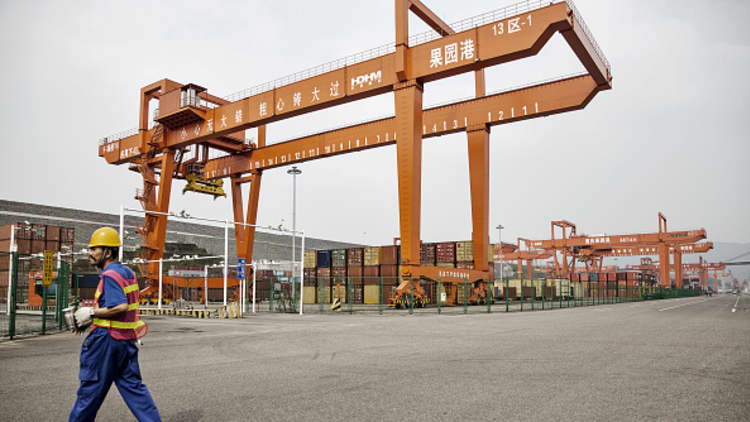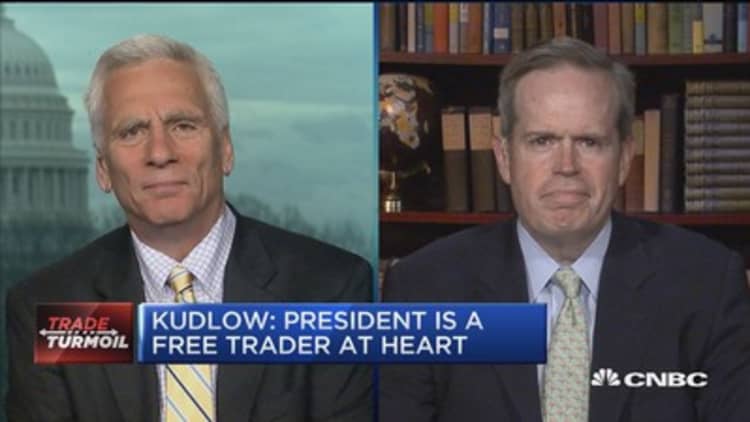
U.S. retailers warn that tariffs proposed by President Donald Trump on Chinese imports would raise prices for American consumers on many products.
Trump's list includes more than 1,300 goods, such as flat-screen televisions, appliances and everyday consumer products. Clothing and shoes are not targeted.
Industry experts fear retailers that sell consumer electronics would be most affected. Still, the impact should be minimal at best, they said, though that could change if Trump decides to change course and target a broader range of products.
"As we've said all along, tariffs are taxes on consumers and a drag on the nation's economy," said Matthew Shay, president and CEO of the National Retail Federation. "This entire process creates uncertainty and makes it difficult for retail companies that must rely on complicated global supply chains."
The NRF said it would urge the Trump administration to "hold China accountable" but "recognize the unintended consequences of protectionist trade policies."
Just last month, Best Buy CEO Hubert Joly said he feared retaliation by China as Trump announced his plans to slap tariffs on steel and aluminum. The president previously approved tariffs on solar cells and certain washing machines.
Shortly after Trump's latest list of 1,300 goods was released, China on Wednesday morning threatened to implement its own tariffs on 106 U.S. products, including cars, planes, orange juice and soybeans. China's response sparked fears that a trade war involving the world's two largest economies could quickly escalate.
"We look forward to the opportunity to share our thoughts on [President Trump's] proposed list of products and on how to make sure these measures do not inadvertently hurt millions of American families, students, small businesses, and schools by causing them to pay more for the consumer electronics they rely on every day," Best Buy said in a statement.
The Retail Industry Leaders Association is warning that tariffs could hit American households the hardest.
"Retailers fully support holding our trading partners accountable when there is a proven case of intellectual property theft, but we remain concerned that many of these proposed tariffs will punish American consumers," said Hun Quach, the group's vice president of international trade.
Trump's intent might be to target "Chinese technology violators," she said, but the tariffs would ultimately hike the cost of everyday items.
Others say the tariffs could force retailers to look beyond China for other sources of supplies.
"This should give pause to retail buyers to diversify their sourcing and preferably try to bring some of it back on shore," said Retail Metrics founder Ken Perkins. "Too many retailers have become way too dependent on cheap Chinese suppliers for their sourcing that has heavily contributed to our massive trade deficit with China."
— CNBC's Liz Moyer and Jacob Pramuk contributed to this reporting.
WATCH: Still time to negotiate tariffs and walk back



